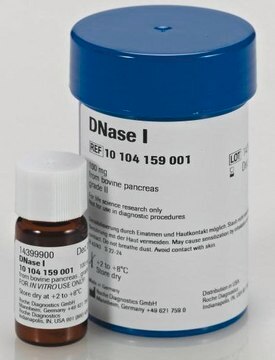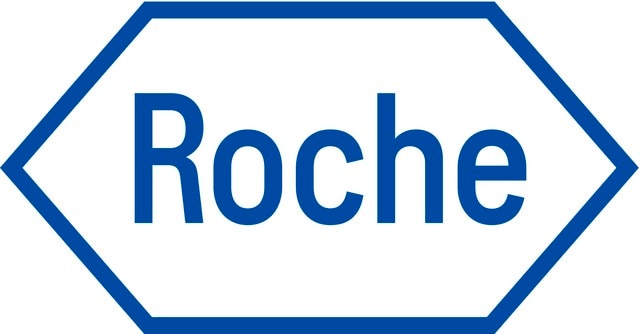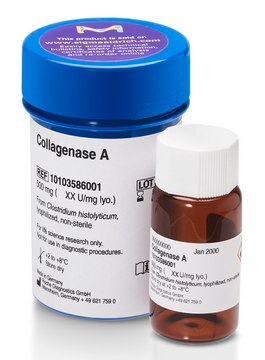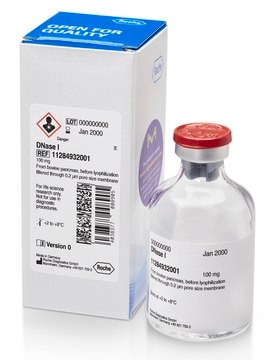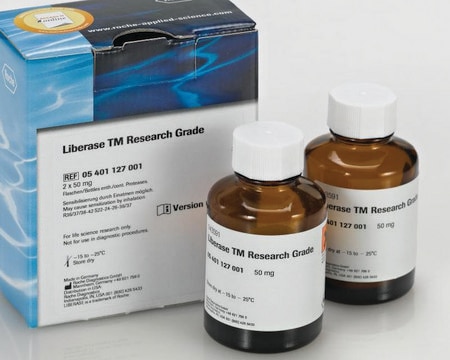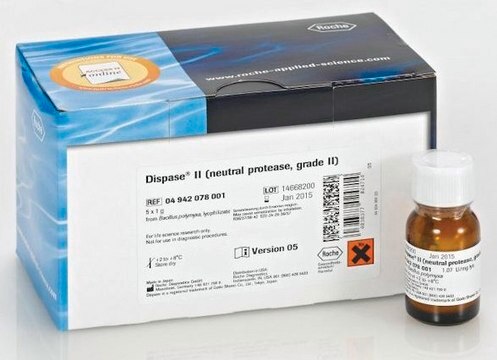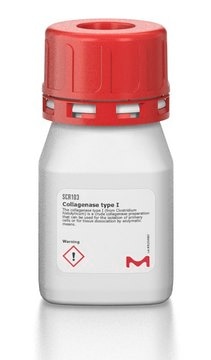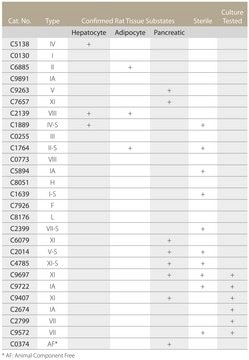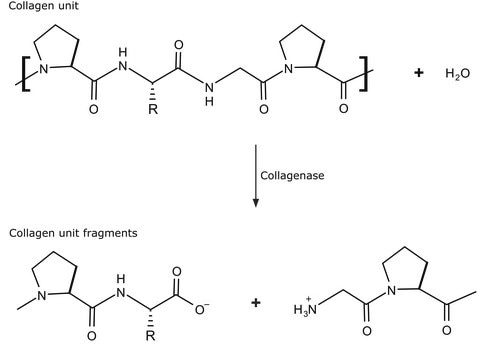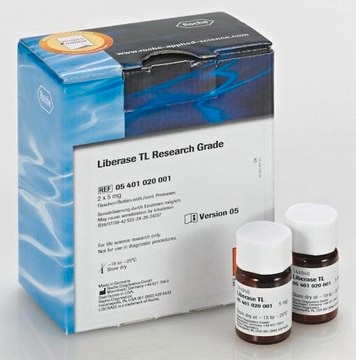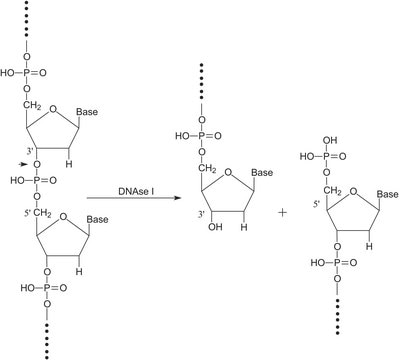COLLD-RO
Roche
Collagenase D
from Clostridium histolyticum
About This Item
Recommended Products
biological source
Clostridium histolyticum
Quality Level
sterility
non-sterile
form
lyophilized
collagenase activity
>0.15 U/mg lyophilizate
packaging
pkg of 100 mg (11088858001)
pkg of 2.5 g (11088882001)
pkg of 500 mg (11088866001)
manufacturer/tradename
Roche
concentration
(working concentration: 0.5 - 2.5 mg/ml)
technique(s)
tissue processing: suitable
color
light brown
optimum pH
6.0-8.0
solubility
water: soluble
NCBI accession no.
application(s)
cell analysis
foreign activity
Clostripain 0.060 U/mg
Proteases 8 U/mg ( Azocoll)
Trypsin <0.2 U/mg (with BAEE)
storage temp.
2-8°C
General description
Specificity
Application
Clostridium collagenase from Roche has been used to prepare cells from many types of tissue, such as hepatocytes, adipocytes, pancreatic islets, epithelial cells, muscle cells, endothelial cells, etc. However, suitability of each lot of the enzyme for disruption of a particular tissue should be determined empirically.
Features and Benefits
Lyophilizate, nonsterile
Unit Definition
Frequently, collagenase activities are given in Mandl units (1 μmol leucine liberated from collagen in 5 hours at +37 °C).
Unfortunately, there is no consistent conversion factor between the two units of activity, since the Mandl unit depends, in part, on the concentration of contaminating proteases in the collagenase preparation, an indefinable variable. A purer collagenase preparation would actually give a lower specific activity in Mandl units than a crude preparation. Clostridium preparations typically give conversion factors of approximately 1:1800 (e.g., a particular lot of Clostridium collagenase contained approximately 0.15 Wünsch U/mg and 250 Mandl U/mg).
Physical form
Preparation Note
Working concentration: 0.5 - 2.5mg/ml
Storage conditions (working solution): -15 to -25°C
Roche recommends reconstituting only the amount of lyophilizate needed for immediate use. The reconstituted solution can be stored at -15 to -25°C for up to one week. Avoid repeated freezing and thawing since activity decreases after reconstitution.
Inhibitors:
Collagenase inhibitors: EDTA, EGTA, Cys, His, DTT, 2-mercaptoethanol
Collagenase is not inhibited by serum.
Clostripain inhibitors: TLCK
Trypsin inhibitors: aprotinin, trypsin inhibitor (egg white, soybean)
Enzyme activity:
Collagenase activity: >0.15 U/mg (according to Wünsch) (+25°C, 4-phenyl-azobenzyl-oxycarbonyl-Pro-Leu-Gly-Pro-D-Arg as the substrate)
Contaminating enzyme activities: trypsin, clostripain, and total proteolytic activity
Collagenase D has a normal to high collagenase activity and very low tryptic activity (usually <0.2 units/mg, BAEE as substrate).
Reconstitution
Storage and Stability
Other Notes
signalword
Danger
Hazard Classifications
Eye Irrit. 2 - Resp. Sens. 1 - Skin Irrit. 2 - STOT SE 3
target_organs
Respiratory system
Storage Class
11 - Combustible Solids
wgk_germany
WGK 1
flash_point_f
does not flash
flash_point_c
does not flash
Certificates of Analysis (COA)
Search for Certificates of Analysis (COA) by entering the products Lot/Batch Number. Lot and Batch Numbers can be found on a product’s label following the words ‘Lot’ or ‘Batch’.
Already Own This Product?
Find documentation for the products that you have recently purchased in the Document Library.
Customers Also Viewed
Articles
Enzyme Explorer Key Resource: Collagenase Guide.Collagenases, enzymes that break down the native collagen that holds animal tissues together, are made by a variety of microorganisms and by many different animal cells.
Related Content
Collagenase Guide.Collagenases, enzymes that break down the native collagen that holds animal tissues together, are made by a variety of microorganisms and by many different animal cells.
Our team of scientists has experience in all areas of research including Life Science, Material Science, Chemical Synthesis, Chromatography, Analytical and many others.
Contact Technical Service